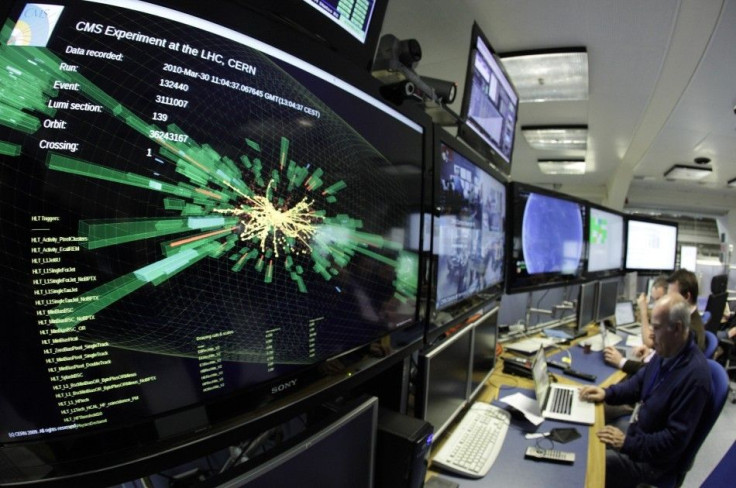Scientists See 'Hint' of Higgs Boson 'God Particle'

Research at the world's largest most complicated and expensive science labs are showing signs of physic's most elusive particle -- the Higgs Boson, or the "God Particle" -- but its continues to elude scientists.
Researchers at the European Organization for Nuclear Research (CERN) fired streams of protons through the Large Hadron Collider (LHC) particle accelerator, and found something unusual.
The anomalies could be the first signs of the particle, researchers said.
"We know everything about the Higgs boson except whether it exists," said CERN director Rolf Heuer to press on Monday. "We can settle this Shakespearean question -- to be or not to be -- by the end of next year.
But they stressed that it was too early to know whether the signals were due to the missing particle, but it does mark the latest step to solving the mystery.
At the same time, researchers have been analyzing data from the U.S Department of Energy's Fermilab near Chicago, turning up their own indications of the particle.
"The search for the Higgs boson is entering its most exciting, final stage," Stefan Soldner-Rembold, spokesman for Fermilabs said last week .
The hints seen at the Tevatron -- Fermilabs' particle accelerator -- are weaker than those reported at the LHC, but occur in the same "search region".
The U.S discovery, alongside the European one ratchets up rivalries between the rivalry between the two high-energy physics labs.
The picture would become clearer as the groups gathered more data and combined results in the next few months, Fermilabs said.
The view was shared by the CERN group, which said more data was needed to understand whether the bumps were due to "statistical fluctuations or possible hints of a signal".
"With the data we have analyzed already, and building on our extensive measurements of Standard Model processes, we are beginning to explore much of the available mass range for the Higgs and many scenarios of new physics," said Fabiola Gianotti, another CERN spokes person.
The results are being presented and discussed at the Europhysics conference in Grenoble, France.
If scientists find the Higgs boson, it would add further evidence of the validity to the Standard Model, which has been a cornerstone of particle physics for decades.
The standard model says that the Higgs boson is the reason that some particles -- and the atoms of which they are made -- have any mass at all, and why photons do not.
Without the 'God particle', however, that whole edifice falls apart because the Standard Model would then fail to answer why particles have mass.
"If you find the Boson Higgs, the Standard Model is complete. If you don't find it, then the Model has a serious problem. Both outcomes are discoveries," Heuer explained.
No experiment has directly observed the Higgs boson yet.
The Higgs is called the "God particle" after the title of a book by American physicist Leon Lederman, in part because it would help unify several branches of physics by proving the Standard Model.
The LHC will keep running experiments through the end of 2012. By that time enough collisions will have happened that it should be clear if the Higgs exists or not.
Completed in 1983 with several upgrades, the Tevatron and associated tools cost over $1 billion to manufacture, while the hither powered LHC, costs roughly $8 billion.
Must Read: 'Lost Gospel' Uncovered, Scholars Called Upon For Decoding
© Copyright IBTimes 2024. All rights reserved.





















